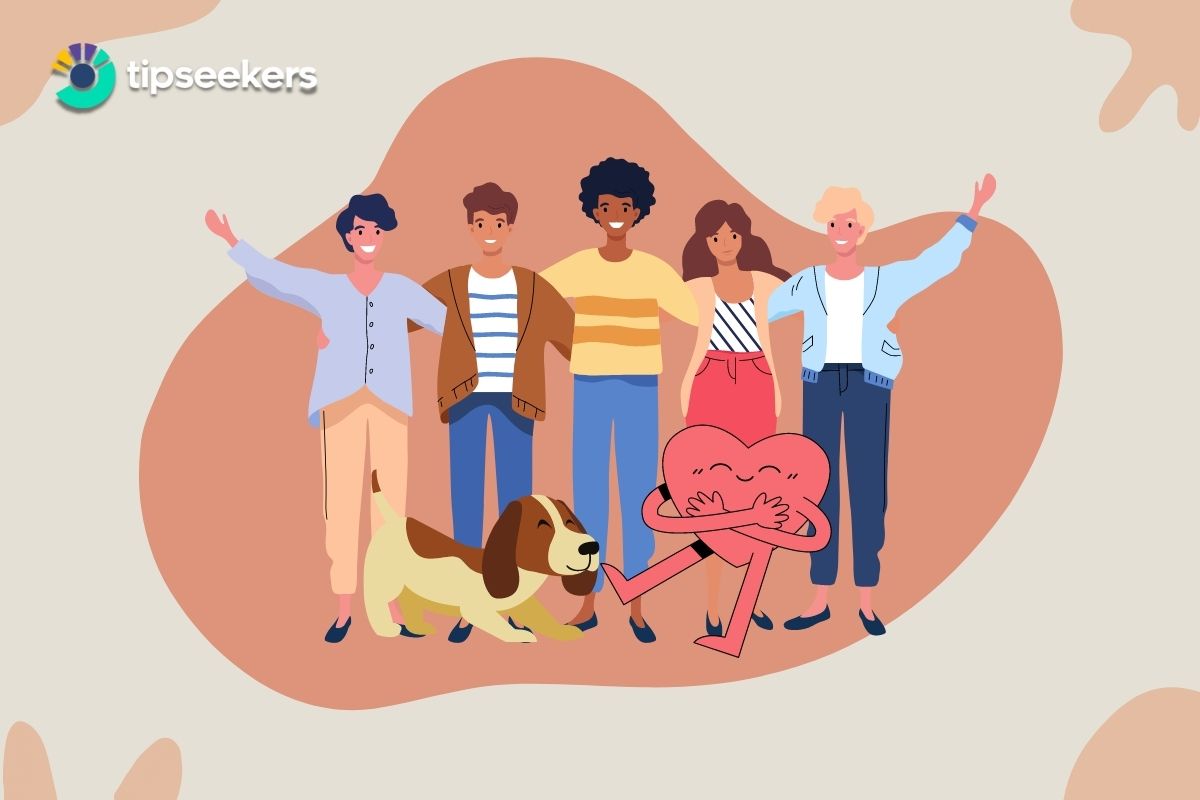Happiness is a feeling that everyone wants to experience. However, it can be challenging to find happiness and maintain it in our lives. In this blog post, we’ll explore some tips and tricks for a happier life.
Practice Gratitude
Gratitude is the practice of appreciating the good things in your life. It can be easy to focus on the negatives, but taking a moment to be thankful for the positives can help you shift your mindset and feel happier. One way to practice gratitude is to keep a gratitude journal. Each day, write down three things you’re grateful for, no matter how small they may seem.
Practicing gratitude is a great way to shift your focus to the positive things in your life, which can help improve your overall well-being and mindset. Here are a few ways you can practice gratitude:
- Keep a gratitude journal: Take a few minutes each day to write down things you’re grateful for. It can be as simple as a warm cup of coffee or a kind word from a friend.
- Express gratitude to others: Take the time to thank someone who has helped you or made a positive impact in your life. This can be done in person, over the phone, or even through a simple thank-you note.
- Practice mindfulness: When you’re feeling overwhelmed or stressed, take a few deep breaths and focus on the present moment. Try to find something in your surroundings that you’re grateful for, such as a beautiful sunset or a peaceful moment of solitude.
- Volunteer: Giving back to others can help you appreciate the blessings in your own life. Find a cause you’re passionate about and get involved in your community.
- Reflect on your day: Before going to bed, take a few minutes to reflect on the positive moments of your day. This can help you end the day on a positive note and start the next day with a grateful mindset.
Remember, practicing gratitude is a mindset and a habit that takes time to develop, but the benefits are well worth it!
Cultivate Positive Relationships
The people we surround ourselves with can have a significant impact on our happiness. Cultivating positive relationships with family, friends, and loved ones can help us feel supported, loved, and happy. Make time for the people who matter to you, and make an effort to connect with new people who share your interests.
Cultivating positive relationships is an important aspect of our personal and professional lives.
Here are some tips for building and maintaining positive relationships:
- Communicate effectively Effective communication is key to building positive relationships. Be clear and honest with your thoughts and feelings, and actively listen to others.
- Show empathy Try to understand others’ perspectives and feelings. Empathy helps build deeper connections and shows that you value and respect others’ feelings.
- Be supportive Be there for others during their tough times, and celebrate their successes. Supporting others builds trust and strengthens relationships.
- Resolve conflicts constructively Conflicts are inevitable in any relationship, but resolving them constructively can help maintain positive relationships. Focus on finding a resolution that works for all parties, and avoid blaming or attacking others.
- Invest time and effort Building positive relationships takes time and effort. Make time to connect with others, and show that you value the relationship.
- Be authentic Be true to yourself, and don’t pretend to be someone you’re not. Authenticity helps build trust and fosters deeper connections.
Remember, positive relationships take effort, but they can bring many benefits to our lives, including greater happiness, support, and a sense of belonging.
Take Care of Your Body
Taking care of your body can also improve your happiness. Exercise, healthy eating, and getting enough sleep can all contribute to feelings of well-being. Find an exercise routine that you enjoy, eat a balanced diet with plenty of fruits and vegetables, and aim for seven to nine hours of sleep each night.
It is essential to your physical and mental health and well-being that you take care of your body.
Here are some ways you can take care of your body:
- Exercise regularly: Regular physical activity can help reduce the risk of chronic diseases, boost your mood, and improve your overall health. Aim for at least 150 minutes of moderate-intensity exercise per week.
- Eat a balanced diet: Eating a balanced diet that includes plenty of fruits, vegetables, whole grains, lean proteins, and healthy fats can help nourish your body and support your overall health.
- Get enough sleep: Aim for at least 7-8 hours of sleep per night. Getting enough rest can help improve your mood, cognitive function, and overall health.
- Practice stress management: Stress can take a toll on your physical health, so it’s important to manage stress through techniques like meditation, yoga, or deep breathing exercises.
- Stay hydrated: Drinking enough water can help support your body’s functions, such as digestion, circulation, and regulating body temperature.
- Avoid harmful substances: Avoid smoking, excessive alcohol consumption, and other harmful substances that can have negative impacts on your health.
Keep in mind that taking care of your body is a process that continues through your life, and that making even simple changes can result in significant gains to your general health and well-being.
Find Meaningful Work
Work can take up a significant portion of our lives, so finding work that is fulfilling and meaningful can contribute to our overall happiness. If you’re feeling unfulfilled in your current job, consider exploring new career paths or volunteering in your spare time to find work that aligns with your values.
Finding meaningful work is a process that involves exploring your values, interests, skills, and experiences to identify career options that align with your personal and professional goals.
Here are some steps you can take to find meaningful work:
- Reflect on your values: Think about what matters most to you in life. This could include things like helping others, making a positive impact on the world, having work-life balance, or being creative. Once you have a clear idea of your values, you can look for careers that align with them.
- Assess your interests and skills Consider your hobbies, passions, and talents. What are you good at? What do you enjoy doing? These can be indicators of potential career paths that would bring you fulfillment and satisfaction.
- Research career options Use online resources like career assessments, job boards, and company websites to explore different career options. Look for jobs that align with your values, interests, and skills.
- Network with professionals Reach out to people in your desired field and ask them about their experiences. They can provide insight into the day-to-day tasks of the job, as well as tips on how to break into the industry.
- Gain experience Consider taking on internships, volunteering, or freelancing to gain experience in your desired field. This can also help you build your skills and network with professionals in your industry.
- Experiment and iterate It’s okay if your first job doesn’t feel like the perfect fit. Keep experimenting and refining your career path based on your experiences and feedback from others.
Understand that meaningful employment is unique to each individual, so don’t be afraid to think outside the box and explore unconventional paths. The most important factor in finding a fulfilling job is to be open-minded, adaptable, and proactive in your approach.
Practice Mindfulness
Mindfulness is the practice of being present and fully engaged in the current moment. It can help reduce stress and anxiety and promote feelings of calm and happiness. Some ways to practice mindfulness include meditation, yoga, or simply taking a few deep breaths and focusing on your surroundings.
Here are some tips for practicing mindfulness:
- Start small: Begin with just a few minutes of mindfulness practice each day, gradually increasing as you become more comfortable.
- Find a quiet spaceChoose a quiet and comfortable space where you can sit or lie down without distractions.
- Focus on your breathFocus your attention on your breath, paying close attention to the sensation of the air moving in and out of your body.
- Acknowledge your thoughtsWhen your mind starts to wander, acknowledge your thoughts without judgment and gently guide your focus back to your breath.
- Use guided meditationsThere are many guided meditations and mindfulness exercises available online or through apps that can help you focus and stay present.
- Practice regularlyConsistency is key when it comes to mindfulness. Try to practice daily or several times a week to establish a regular routine.
Observe that practicing mindfulness is a skill that takes time and effort to master. You may develop a stronger sense of presence, tranquility, and wellbeing in your life with effort and time.
Do Things That Bring You Joy
Finally, it’s important to make time for the things that bring you joy. Whether it’s spending time in nature, reading a good book, or pursuing a hobby, taking time for yourself and doing the things you love can help you feel happier and more fulfilled.
In conclusion, finding happiness can take effort, but it’s worth it. By practicing gratitude, cultivating positive relationships, taking care of your body, finding meaningful work, practicing mindfulness, and doing things that bring you joy, you can create a happier and more fulfilling life.















